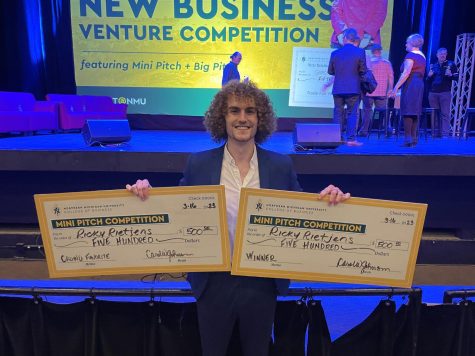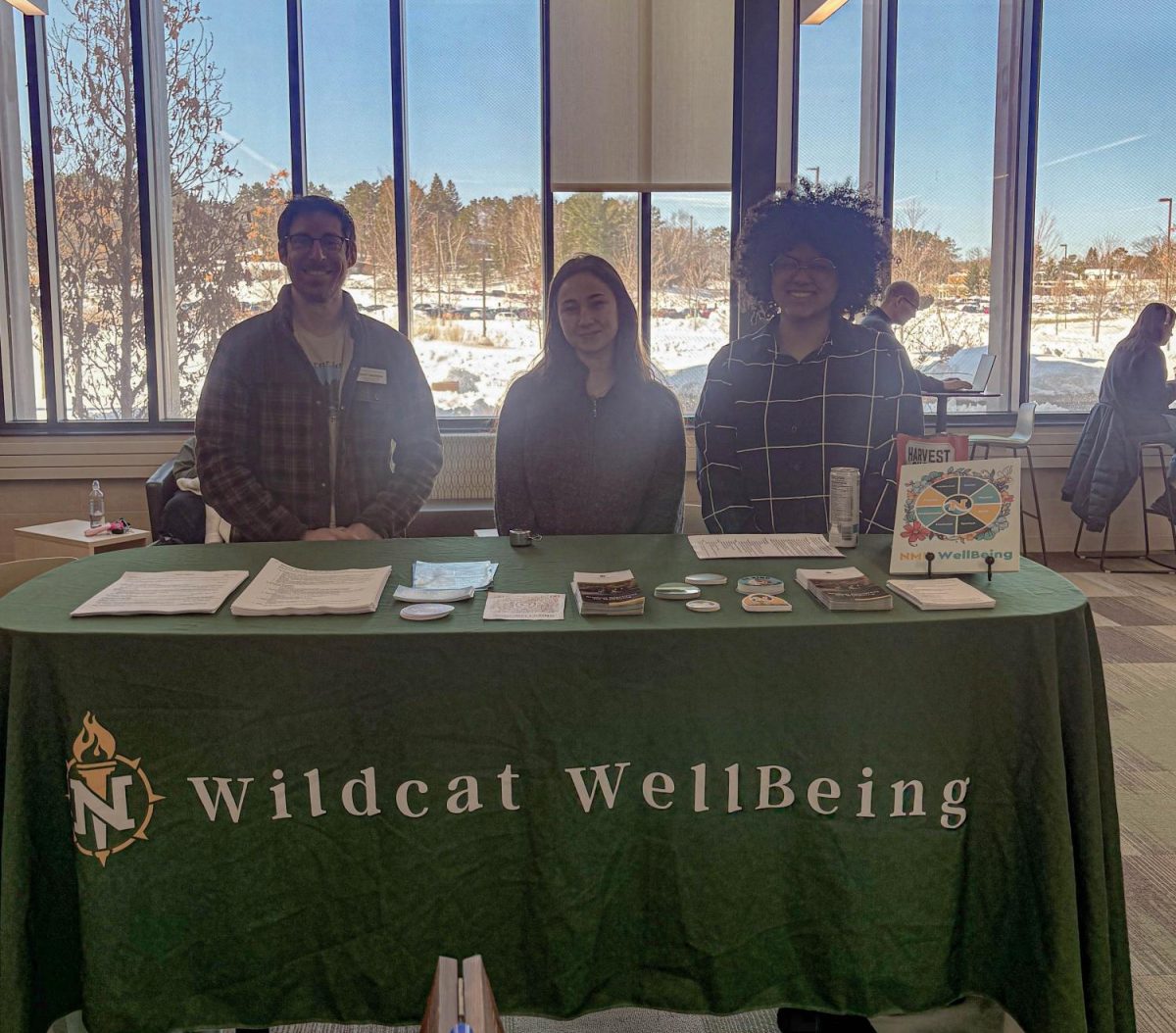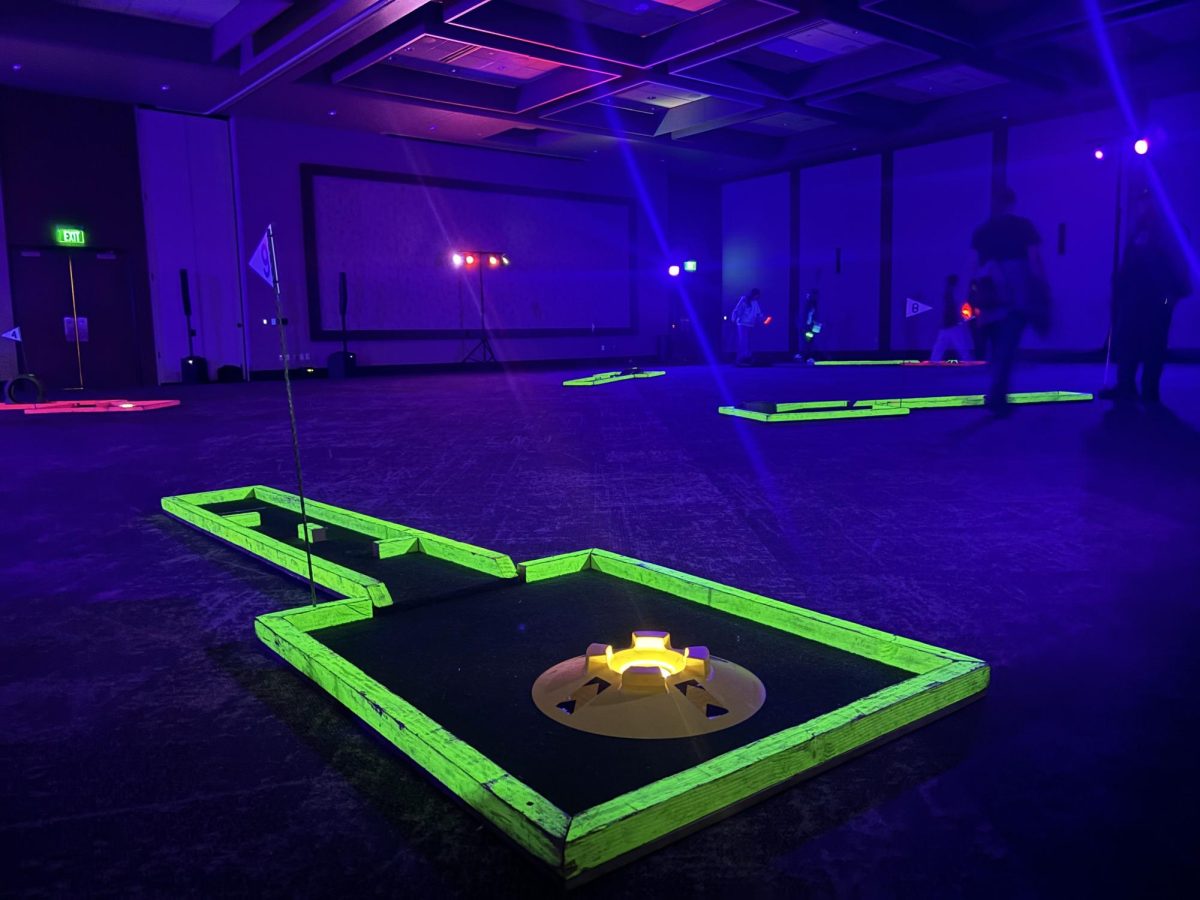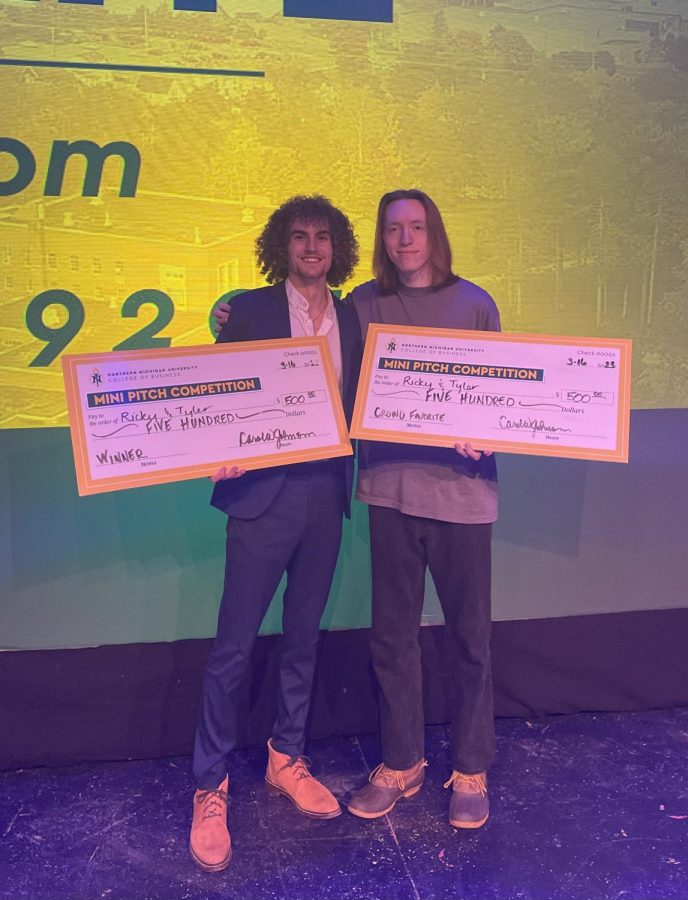Peninsula Produce to create first ever commercial hydroponic facility in U.P.
Duo Ricky Rietjens’ and Tyler Watson’s business plan and pitch, Peninsula Produce, wins crowd favorite and judge’s pick at NMU’s second annual Mini Pitch competition presented by Invent@NMU, NMU and the Lake Superior Community Partnership
Photo courtesy of Ricky Rietjens
THE MINI PITCH —Ricky Rietjens (left) and Tyler Watson (right) pose after winning the Mini Pitch competition with their business proposal idea, Peninsula Produce.
March 27, 2023
Business partners and NMU alumni, Ricky Rietjens and Tyler Watson decided on Feb. 24 to submit their Peninsula Produce idea to the Mini Pitch competition, but have been diligently working on their business plan since the fall of 2022.
“We’re trying to make this a real thing and we shared this idea with someone other than just the two of us for the first time, the day before the pitch,” Watson said. “The warm recognition we got that day, and then winning the pitch competition and giving us an invite to go downstate for this to be our … personal kind of project we’ve been investing so much of our time and energy into, it feels like the people in the area want us to succeed.”
Rietjens and Watson, both medicinal plant chemistry graduates, participated as a team in NMU’s second annual Mini Pitch competition presented by Invent@NMU with NMU and the Lake Superior Community Partnership on Thursday, March 16 at NMU’s Forest Roberts Theatre.
Similarly to the Big Pitch, NMU’s Mini Pitch is a competition where its intended goal is to show that all ideas are encouraged and worth exploring. It is still a “Shark Tank” style competition where students pitch ideas to a panel of judges to win one of four $500 cash prizes, however, teams are not required to provide a business plan to prove that the teams’ idea is practical.
NMU students of any major or academic background are welcome to apply to the competition as it is supposed to be fun and teams are given creative freedom on how they present, Watson said.
The Mini Pitch panel of judges included Carol Johnson, dean of NMU’s College of Business, and David Kronberg, director of entrepreneurial services at Invent@NMU and Innovate Marquette. The competition is open to the public to be viewed.
“So essentially within our business, Peninsula Produce, we are trying to create the first ever commercial hydroponic facility (growing crops without soil by using water-based mineral nutrient solutions) in the Upper Peninsula to provide year-round access to fresh, local healthy produce,” Rietjens said. “We want to start with leafy greens, herbs and microgreens, expanding to fruiting crops like cucumbers, tomatoes, peppers and strawberries.”
The duo is trying to bridge the gap between food access and food deserts to allow people to have access to fresh, local, nutrient-rich produce whenever they want it.
There are a lot of issues that surround the current food system, Rietjens said, with eight out of the 10 most food insecure counties in the state being located within rural northern Michigan.
The U.P., particularly Marquette County, is unsuitable for agriculture due to 83% of the land being forested, Watson said. With such a short growing season, producing food hydroponically would extend that growing season year-round.
“For an area that’s already struggling with food insecurity and having access to fresh food and food that has to travel thousands of miles to get here, being able to produce fresh local food that is a higher quality product than that of traditional agriculture would be incredibly important up here,” Watson said.
Michigan is implementing smart zones, which are hubs of entrepreneurs throughout the state, and Marquette is one of those, with Invent NMU, Innovate Marquette and a number of communities that have spaces downtown, Watson said.
These hubs have been trying to promote a culture of innovation, focusing on tech startups in Michigan. They are also trying to create more of an environment that encourages younger people to stay in the state and to promote job growth with their ideas, especially in the tech sector, in areas like the U.P. and several other areas of the state.
“We’re really doing it out of aspirations to increase the food security of the region and to provide food to those who need it up here,” Watson said.
The hydroponic industry has nearly a 20% compound annual growth rate and is currently one of the fastest with a growing population, which is generally the only route to be able to feed everyone, especially in more remote areas, Watson said.
“We’re really committed to that and we’re actively working, there’s a lot of growth for it and I think any urban area could benefit from hydroponic farming,” Watson said. “I think we’re a little bit of a standout from a lot of the other mini pitches in the fact that we are actively working on this business.”
The duo’s business idea, Peninsula Produce, won the crowd’s favorite and judge’s pick and were invited to give their pitch again to TCNewTech in a few weeks, Rietjens said.

“Honestly, [I feel] just pure, wholesome love and appreciation and gratitude for my business partner Tyler and for the community, for the people that have helped us already along the way,” Rietjens said. “Everyone has been just so positive, and we’ve always known that this idea would work, and we always were confident, but now seeing it truly come to fruition is just a magical feeling.”
Rietjens and Watson can be contacted via email at tyler@peninsulaproduce.co and ricky@peninsulaproduce.co and those looking to follow along with Peninsula Produce’s journey can do so at their website peninsulaproduce.co, Instagram @peninsulaproduceco and Twitter @UPProduceCo.



























